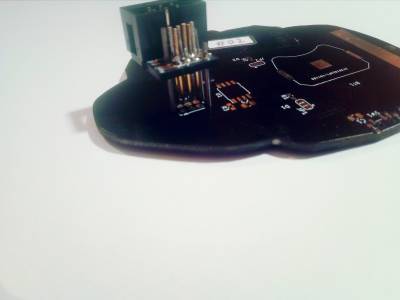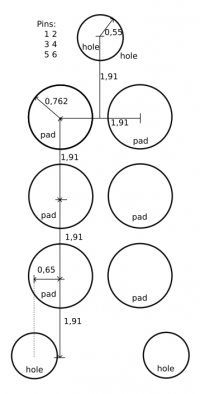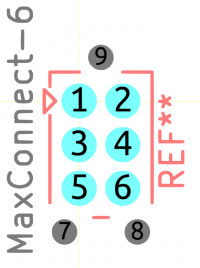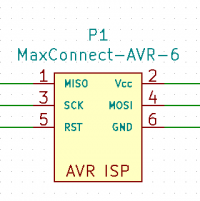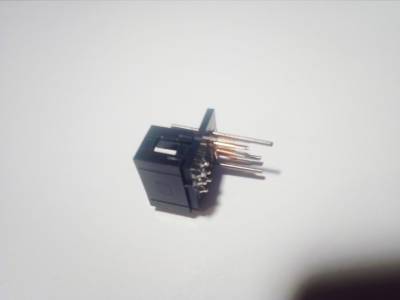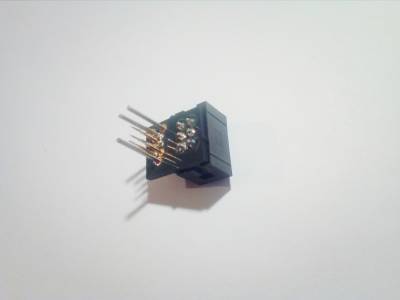Dies ist eine alte Version des Dokuments!
MaxConnect
Contact: nopx
Related Work
MaxConnect-6
Downloads
en: You could find the footprint and the kicad schematics here, without warranty: MaxConnect-6.zip
de: Hier der Footprint und die KiCad Schematics (ohne Gewähr) MaxConnect-6.zip
Description
en: To get our pcbs faster programmed without soldering a cable every time, we build a small programmingadapter with PogoPins. Similar to JTag Connect but a cheaper and selfmade. To use the maxconnect-adapter, use the following footprint on your pcb:
de: Um Platinen schneller programmieren zu können ohne jedesmal Kabel anzulöten habe ich mir einen kleine Programmieradapter mit PogoPins gebaut. Ähnlich JTag Connect. Nur billiger. Um den MaxConnect verwenden zu können wird folgender Footprint auf der Platine benötigt:
en: The pins are like this:
de: Die Pins sind wie folgt angeordnet:
en: MaxConnect consists out of programmingadapter with 6 pogopins that are mapped onto a 2×3 2.54mm PinHeader. Additionally there are 3 metalsticks, which are going through the pcbs to prevent the adapter from getting out of place and being plugged in in the wrong direction. Of cause you could save the stick and the holes if you mark the right direction on the pcb.
de: MaxConnect besteht im Wesentlich aus einer Adapterplatine, die 6 PogoPin auf einen 2×3 Header umbiegt. Außerdem werden 3 Metalstifte verwendet, die durch die Platine fahren. Diese erzeugen Halt, verhindern ein verrutschen und sorgen dafür dass der Connector verdreh-sicher ist. Natürlich kann man sich die Metalstifte auch sparen, wenn man keine Löcher in der Platine haben möchte.
AVR ISP
en: I use the connector in particular for programming AVR-microcontrollers. The pin assignment in this case looks like the following:
de: Ich verwende den Connector insbesondere für die Programmierung von AVR-Mikrokontrollern. Die Pinbelegung sieht da wie folgt aus:
